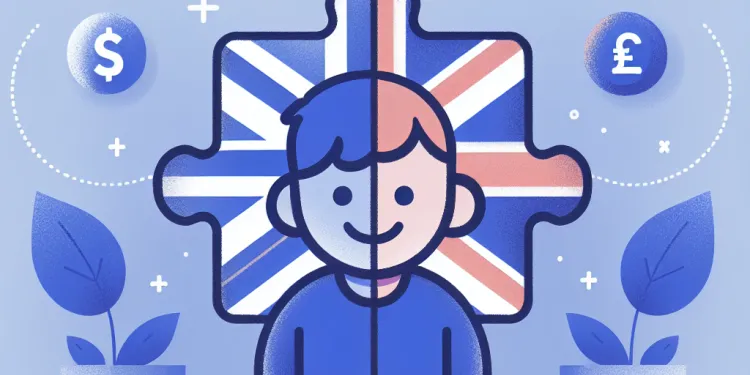
Find Help
More Items From Ergsy search
-
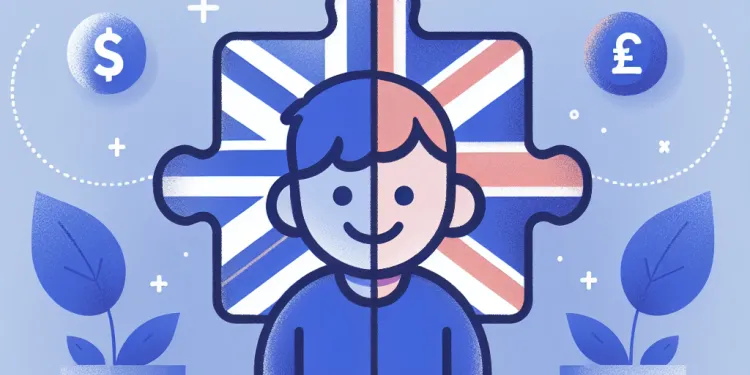
What is the difference between autism and Asperger's syndrome?
Relevance: 100%
-
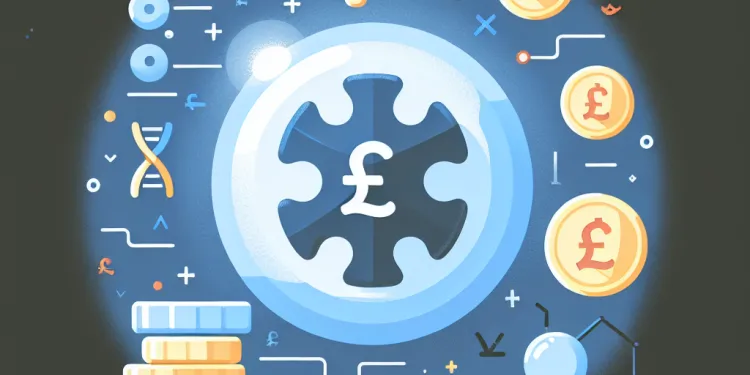
What is Autism?
Relevance: 45%
-

What is the autism spectrum?
Relevance: 44%
-

Autism - My Story - Adrian | NHS
Relevance: 36%
-
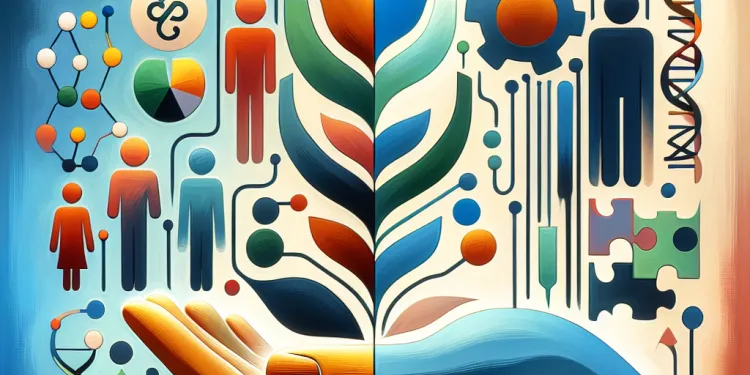
Is there a genetic component to autism?
Relevance: 36%
-

Is there an autism test?
Relevance: 35%
-

What causes autism?
Relevance: 35%
-

How prevalent is autism?
Relevance: 34%
-
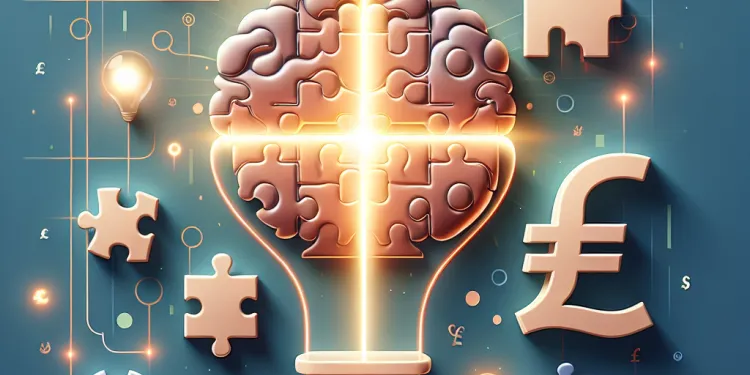
Can autism be cured?
Relevance: 33%
-

What are the signs of autism?
Relevance: 33%
-
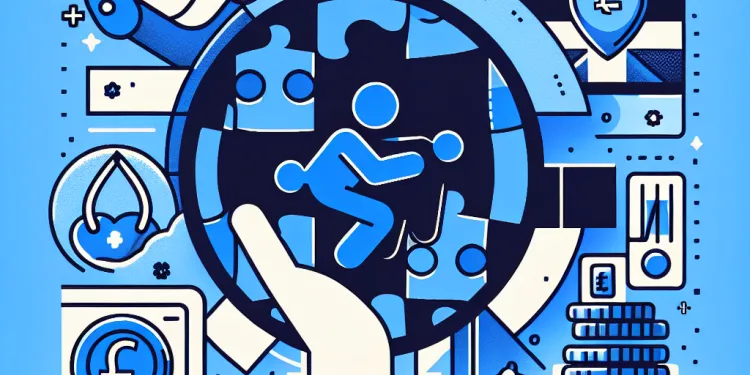
How is autism diagnosed?
Relevance: 33%
-

Are vaccines linked to autism?
Relevance: 33%
-
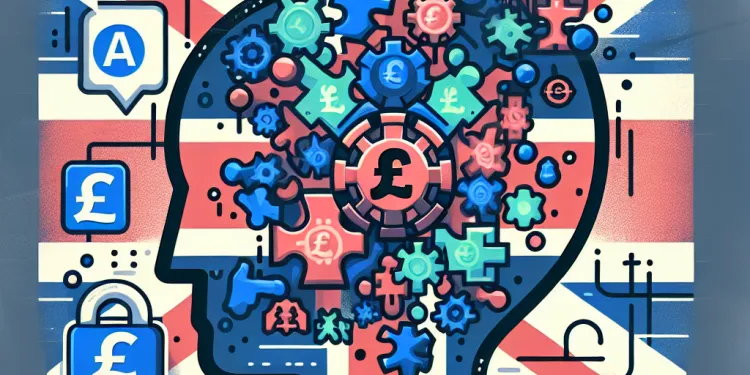
Can adults have autism?
Relevance: 32%
-

Autism: Graeme's story | NHS
Relevance: 32%
-

Is paracetamol linked to autism?
Relevance: 32%
-

Autism - My Story - Rosalind | NHS
Relevance: 32%
-
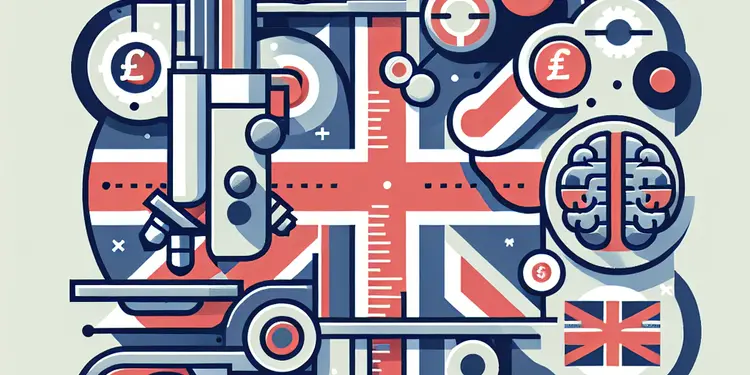
What can cause autism, if not paracetamol?
Relevance: 31%
-
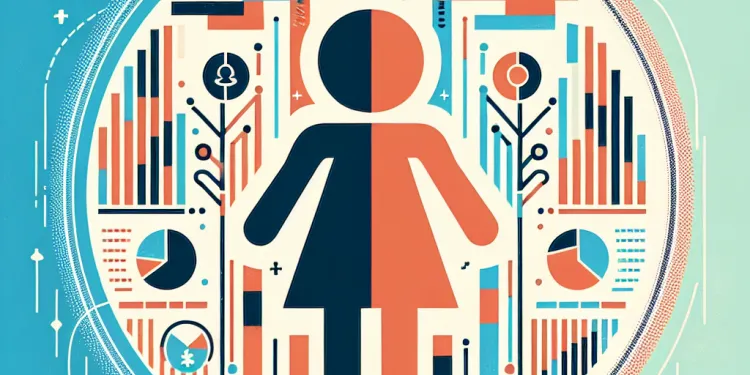
Is autism more common in boys or girls?
Relevance: 31%
-

How does autism affect communication?
Relevance: 31%
-

What are some common therapies for autism?
Relevance: 31%
-
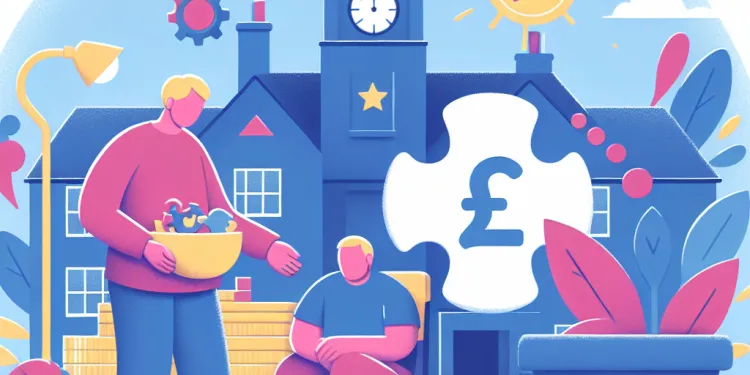
Can people with autism lead independent lives?
Relevance: 30%
-

Autism Assessment - What Happens in Your Appointment
Relevance: 29%
-

What role do sensory issues play in autism?
Relevance: 29%
-

How can families support a member with autism?
Relevance: 29%
-
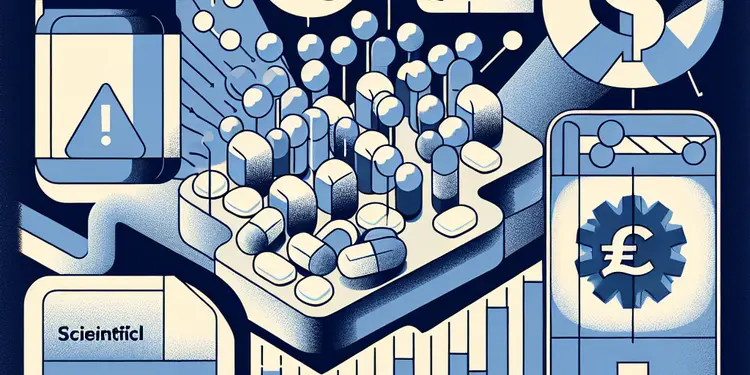
Is there any scientific evidence that links paracetamol use to autism?
Relevance: 28%
-
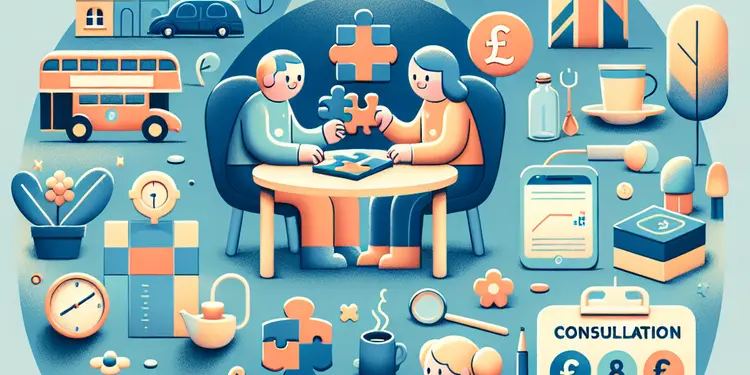
What advice is available for parents concerned about autism risks?
Relevance: 28%
-

The NHS Long Term Plan for learning disability and autism
Relevance: 28%
-
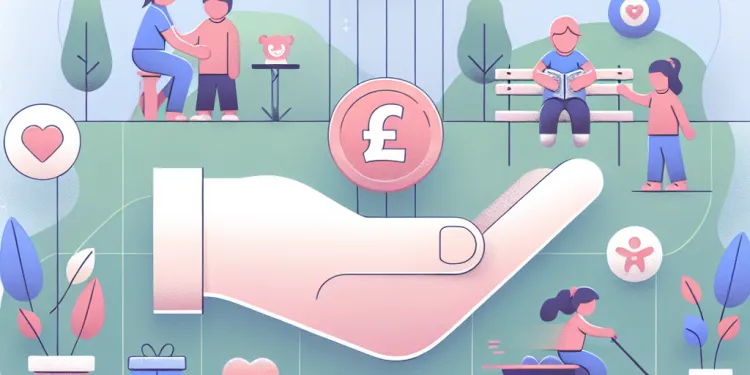
How can early intervention help children with autism?
Relevance: 28%
-
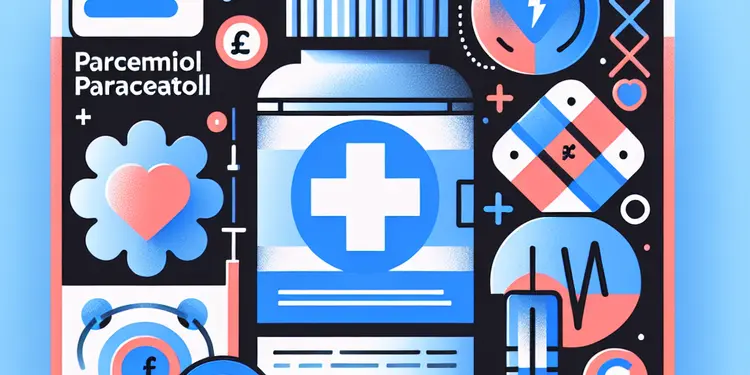
Why is there concern about paracetamol and autism?
Relevance: 28%
-

Is there any risk of using paracetamol outside of pregnancy with regard to autism?
Relevance: 27%
-

What kind of studies are conducted to investigate links between medications and autism?
Relevance: 27%
-
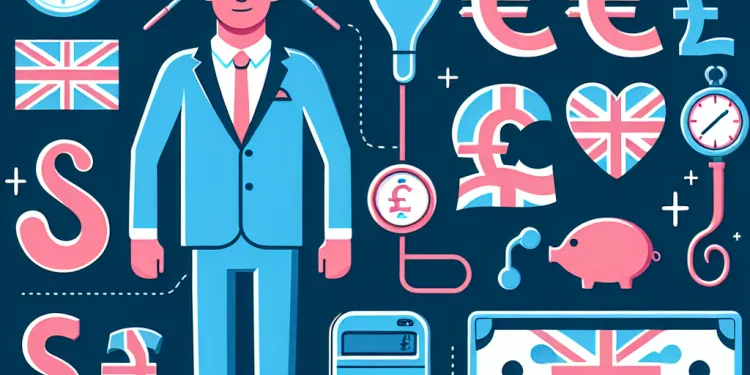
What is Cushing's syndrome?
Relevance: 26%
-

Munchausen's syndrome | NHS
Relevance: 26%
-

Prader-Willi Syndrome | NHS
Relevance: 26%
-
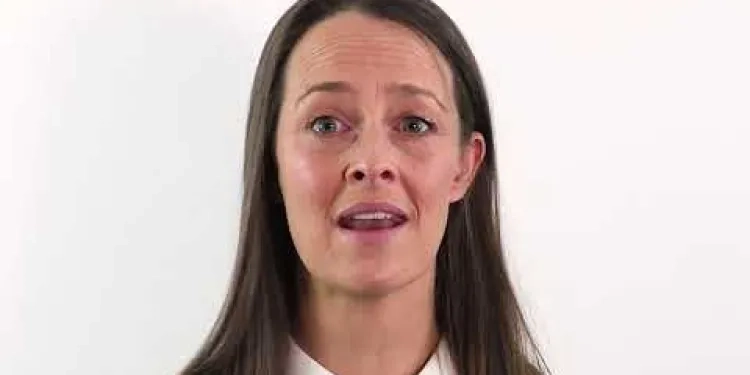
Carpal Tunnel Syndrome
Relevance: 25%
-
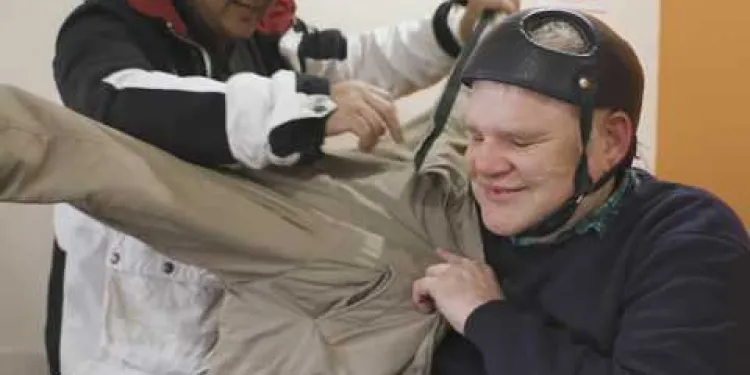
Transforming Care for people with Learning Disabilities and/ or Autism: Peter's Story
Relevance: 25%
-
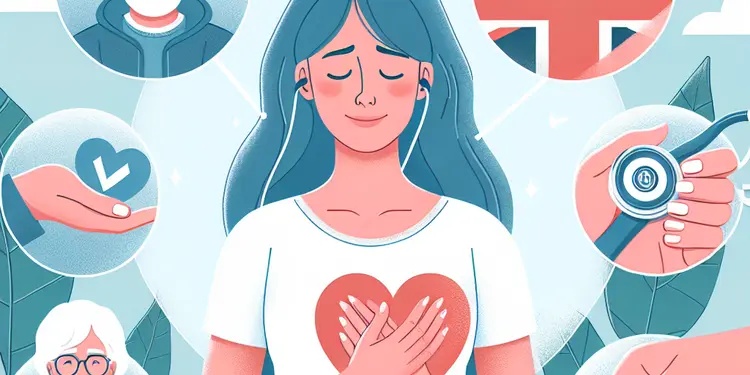
Is chronic fatigue syndrome contagious?
Relevance: 24%
-
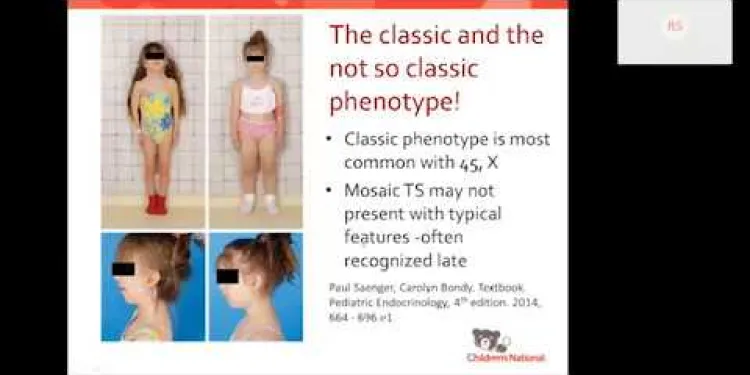
Turner syndrome: Beyond the classic XO phenotype
Relevance: 24%
-

Having a child with Down's syndrome | NHS
Relevance: 24%
-

Down's syndrome: Emily's story | NHS
Relevance: 24%
Understanding Autism and Asperger's Syndrome
The terms "autism" and "Asperger's syndrome" are often used in discussions about neurodevelopmental disorders, but it’s important to understand their distinct characteristics, particularly in the context of how they are viewed today. While they have similarities, modern diagnostic practices recognize crucial differences between them.
Autism Spectrum Disorder (ASD)
Autism Spectrum Disorder, commonly referred to as ASD, is a broad range of conditions characterized by challenges with social skills, repetitive behaviors, speech, and nonverbal communication. The term "spectrum" reflects the wide variation in challenges and strengths possessed by each person with autism. In the UK, diagnoses are commonly aligned with criteria outlined in the Diagnostic and Statistical Manual of Mental Disorders (DSM-5) or the International Classification of Diseases (ICD-10). These criteria emphasize a spectrum of symptoms that can range from mild to severe, allowing for a more personalized approach to diagnosis and support.
Asperger's Syndrome
Asperger's syndrome was historically regarded as a separate condition from autism, often seen as a "higher-functioning" variant. Those diagnosed with Asperger's typically have average or above-average intelligence and do not exhibit a significant delay in language development. They might, however, face challenges in social interactions and may demonstrate narrow, intense interests. This term originated from the work of Austrian pediatrician Hans Asperger in the 1940s and gained popularity as a diagnosis distinct from other forms of autism in the late 20th century.
The Diagnostic Evolution
In recent years, the lines between autism and Asperger's have become less distinct. In 2013, the DSM-5 removed Asperger's as a separate diagnosis and instead included it under the umbrella of Autism Spectrum Disorder. As a result, in the UK and other countries adopting these criteria, professionals now diagnose individuals exhibiting Asperger's-like characteristics as having autism spectrum disorder, specifying the level of support they might need.
Implications for Individuals and Families
The reclassification into a single spectrum has implications for the support and resources that individuals can access. Some people who identify with the Asperger's label feel that it more accurately describes their experiences and challenges. However, viewing autism as a spectrum allows for a more nuanced understanding of the diversity in experiences and needs among those affected. It also helps in tailoring interventions more precisely, supporting individuals to lead fulfilling lives.
Conclusion
While historical and diagnostic distinctions between autism and Asperger's syndrome have evolved, understanding these terms' differences is crucial for practitioners, educators, and families. Regardless of specific diagnoses within the spectrum, appreciating each individual's unique profile remains vital in offering appropriate support and fostering inclusive environments.
Understanding Autism and Asperger's Syndrome
Autism and Asperger's syndrome are terms used to talk about how some people's brains are different. They do share similarities, but it is important to know how they are not the same. Doctors today use new ways to understand these differences.
Autism Spectrum Disorder (ASD)
Autism Spectrum Disorder, or ASD, is a group of conditions. People with ASD might find it hard to talk or play with others. They might repeat things over and over or have trouble with talking and body language. "Spectrum" means every person with autism is different. Some might need a lot of help, and others might not. In the UK, doctors use certain books to help figure out if someone has ASD. These books help doctors see if someone needs a little help or a lot.
Asperger's Syndrome
Asperger's syndrome used to be seen as its own condition. People with Asperger's often have average or high intelligence. They usually don’t have trouble learning to talk. But they might find it hard to talk with other people or have strong interests in only a few things. This name comes from a doctor named Hans Asperger who talked about it in the 1940s. People started using this name more in the late 1900s.
The Diagnostic Evolution
In recent years, the way doctors look at autism and Asperger's has changed. In 2013, Asperger's was no longer a separate diagnosis. It is now part of Autism Spectrum Disorder. Because of this, doctors now describe those with Asperger-like traits as having autism spectrum disorder. They also mention the level of help someone might need.
Implications for Individuals and Families
Calling both autism and Asperger's a spectrum changes the help people can get. Some people still like to use the term Asperger's because it describes them well. But seeing autism as a spectrum helps us understand the many differences people have. It also helps make the right plans for each person. This way, everyone can have a happy and full life.
Conclusion
Knowing the difference between autism and Asperger's is important for everyone who wants to help and support people. No matter what the diagnosis is, it's important to see each person as unique. This helps us give the right support and make sure everyone feels included.
Frequently Asked Questions
What is autism?
Autism, or Autism Spectrum Disorder (ASD), is a developmental disorder that affects communication, behavior, and social interactions. It encompasses a broad range of conditions characterized by challenges with social skills, repetitive behaviors, and communication.
What was Asperger's syndrome?
Asperger's syndrome was once considered a separate disorder characterized by milder symptoms of autism without language delay. It is now considered part of the broader autism spectrum under the DSM-5.
How did the definition of Asperger's syndrome change?
In 2013, the Diagnostic and Statistical Manual of Mental Disorders (DSM-5) redefined autism spectrum disorders, eliminating Asperger's syndrome as a separate diagnosis and instead including it under the broader category of Autism Spectrum Disorder.
Is Asperger’s syndrome still diagnosed today?
No, Asperger's syndrome is no longer diagnosed separately. Those who would have been diagnosed with Asperger's are now assessed as having Autism Spectrum Disorder under current diagnostic criteria.
What are the main differences between autism and what was known as Asperger's syndrome?
Asperger's syndrome was typically characterized by milder symptoms and higher functioning, particularly in terms of language and cognitive skills. Individuals usually did not have language delays, which are common in some other forms of autism.
Do individuals with Asperger's syndrome have language delays?
No, individuals with what was known as Asperger's syndrome typically do not have language delays, which is one reason it was distinguished from other forms of autism.
How do social skills differ between autism and Asperger's?
Individuals with Asperger's often have difficulty with social interactions but may be more adept than those with other forms of autism. They may struggle with understanding social cues and nonverbal communication.
What is the significance of the DSM-5 in diagnosing autism?
The DSM-5 eliminated subcategories like Asperger's syndrome and PDD-NOS, consolidating them under Autism Spectrum Disorder to improve diagnostic consistency and clarity.
Can people with Asperger's live independently?
Many individuals with Asperger's or those on the higher-functioning end of the autism spectrum can live independently and successfully, though support needs vary.
Is intellectual disability common in Asperger's?
No, intellectual disability is not common in Asperger's syndrome. Many individuals have average to above-average intelligence.
Do people with Asperger's syndrome have special interests?
Yes, a common characteristic of Asperger's is having intense focus on specific interests, which is also seen in other forms of autism.
Is sensory sensitivity different between autism and Asperger's?
Sensory sensitivity can occur in both autism and Asperger's, although it varies widely among individuals on the autism spectrum.
How does Asperger's syndrome affect employment?
Individuals with Asperger's may face challenges in the workplace related to social interactions but can excel in roles suited to their skills and interests.
Are there any treatment differences between autism and Asperger's?
The approaches to supporting individuals with Asperger's and autism may differ based on the specific challenges faced, but both benefit from tailored interventions such as behavioral therapy.
Can Asperger's be inherited?
Asperger's syndrome, like other autism spectrum disorders, has a genetic component, but it is influenced by a complex interplay of genetic and environmental factors.
How common was Asperger's syndrome before its reclassification?
Before its reclassification, Asperger's syndrome was considered one of the milder and more common forms of autism, but exact prevalence was less clear due to diagnostic variations.
What are some common misconceptions about Asperger's?
Common misconceptions include that people with Asperger's lack emotions or are intellectually gifted savants; the spectrum is diverse, and capabilities and characteristics vary greatly.
How do repetitive behaviors differ between autism and Asperger's?
Repetitive behaviors can occur in both, but individuals with Asperger's might exhibit them in less obvious ways, such as collecting or organizing information.
Can therapies for autism help those with Asperger's?
Yes, therapies such as social skills training or behavioral therapy are often beneficial for those with Asperger's to help address their specific challenges.
Why was Asperger's syndrome reclassified as part of ASD?
Asperger's was reclassified to create a more consistent and streamlined diagnosis process under the umbrella of Autism Spectrum Disorder, reflecting the understanding that autism is a spectrum.
What is autism?
Autism is a condition that affects how people talk, play, and understand the world.
People with autism might find some things harder, like talking to others or trying new things.
Everyone with autism is different. Some people might need more help than others.
Tools like picture cards or a calm space can be helpful.
Talking to a teacher or parent can also help understand autism better.
Autism, or Autism Spectrum Disorder (ASD), is how some people's brains work differently. It can make talking, behaving, and being with others a bit tricky. People with autism might have a hard time making friends, have habits they do a lot, or find speaking with others tough.
What was Asperger's syndrome?
Asperger's syndrome is a way that some people's brains work differently. People with Asperger's may think and learn differently from others.
People with Asperger's might:
- Find it hard to talk with other people
- Prefer to be alone
- Like to do the same thing many times
- Be very interested in a few topics
Today, Asperger's is called Autism Spectrum Disorder (ASD).
Tools to help:
- Pictures and videos can help understand
- Talking with a helper or support worker
- Using apps or games for learning
Asperger's syndrome used to be thought of as its own condition. People with Asperger's had some autism signs but could talk easily.
Now, Asperger's is part of a bigger group of conditions called the autism spectrum. Doctors use something called the DSM-5 to help them decide this.
If you want help understanding autism, you can use tools like picture cards or storyboards. Talking to someone you trust can also help.
What is different about Asperger's syndrome now?
Asperger's syndrome used to be its own thing. Now it is part of something called Autism Spectrum Disorder (ASD).
If you find it hard to read, you can ask someone to help you. You can also try reading slowly, and use your finger to follow the words.
In 2013, doctors changed how they talk about autism. They made a big book called DSM-5. This book helps doctors figure out what people have.
Before 2013, they called some people with autism "Asperger's syndrome." But in the new book, they don't use "Asperger's syndrome" anymore.
Now, they put everyone together under one big name: "Autism Spectrum Disorder."
If reading is hard, you can use tools like audiobooks or reading apps that read out loud to help understand better.
Do doctors still use the term Asperger's syndrome today?
No, Asperger's syndrome is not a separate diagnosis anymore. Now, doctors put it under something called Autism Spectrum Disorder. This is the new way doctors talk about it.
How are autism and Asperger's syndrome different?
Here is a simple way to understand the difference:
- Autism: Some people with autism might need a lot of help every day. They might have a hard time talking or understanding others.
- Asperger's syndrome: Some people with Asperger’s are very good at talking but might find it hard to understand how other people feel. They might need some help but not a lot every day.
Remember, everyone is unique. It's okay to ask for help if you need it. Tools like picture cards and social stories can be helpful for understanding and communication.
Asperger's syndrome means a person has autism, but the signs are not as strong. People with Asperger's are often very good with talking and thinking. They usually don't have trouble learning to speak, which can be a problem for some other types of autism.
Do people with Asperger's syndrome talk later than others?
People with Asperger's syndrome usually learn to talk at the same age as other kids. They might use words in different ways, but they still learn to talk on time.
If you are finding it hard to understand, you can ask someone to help explain. You can also use pictures or videos to learn more.
People with Asperger's syndrome usually learn to talk at the same time as their friends. This is one reason why Asperger's is different from other types of autism.
How are social skills different in autism and Asperger's?
Autism and Asperger's are conditions that affect how people communicate and interact with others. People with autism may find it harder to talk and play with others. They might also have trouble understanding how others feel.
People with Asperger's usually have better language skills. They might talk a lot about things they like, but sometimes they don't know when to stop. They can also find it hard to understand body language and emotions.
Here are some tips to help with social skills:
- Practice talking and listening with a friend or family member.
- Use pictures or cards to help understand feelings.
- Watch videos that show how people talk and play together.
People with Asperger's might find it hard to talk with others. They are usually better at this than people with other types of autism. But they might not understand things like facial expressions or body language.
Here are some helpful tools and tips:
- Use simple words when talking.
- Look at pictures or videos to learn about feelings.
- Practice talking with family or friends.
Why is the DSM-5 important for diagnosing autism?
The DSM-5 is a book that helps doctors understand and find out if someone has autism. It gives rules and lists of signs to look for. This makes sure everyone checks for autism the same way.
Here are some tips to make reading easier:
- Use a finger or a ruler to follow along with the words.
- Take breaks if you feel tired or confused.
- Ask someone for help to read with you.
The DSM-5 made some important changes. It put things like Asperger's syndrome and PDD-NOS together under one name: Autism Spectrum Disorder. This helps doctors be clearer and more consistent when they diagnose people.
Can people with Asperger's live on their own?
People with Asperger's can live alone. They might need some help with learning skills like cooking, cleaning, and planning their day.
It can be useful to have a routine or make lists to remember what to do each day.
Some people might use apps or timers to help them stay on track.
Talking to a helper or joining a group can also be good for learning new things and getting support.
Many people with Asperger's or who are on the higher-functioning end of autism can live on their own and do well. But they might need different kinds of help.
Do people with Asperger's often have learning disabilities?
Some people with Asperger's can also have learning disabilities, but not everyone. Each person is different. If someone you know has Asperger's and is having trouble learning, try using these ideas to help:
- Use clear and simple words when you talk to them.
- Break tasks into small steps.
- Use pictures or drawings to explain things.
- Be patient and give them extra time to understand.
These tools can help make learning easier for people who might need extra help.
No, people with Asperger's usually do not have learning problems. Many are smart and have an average or higher level of intelligence.
Do people with Asperger's have favorite things?
People with Asperger's might really like certain things. These are called "special interests." They can know a lot about them and spend a lot of time learning more.
If you know someone with Asperger's, ask them about what they like. It can be interesting to hear about their favorite things!
Looking at pictures and using talking apps can help when talking about special interests.
People with Asperger's often really like certain things and can focus on them a lot. This can also happen with other types of autism.
Here are some things that might help:
- Use pictures to help explain ideas.
- Take breaks when needed.
- Talk with someone who understands.
- Use a quiet place to focus.
Do people with autism and Asperger's feel things differently?
People with autism and people with Asperger's can both have strong reactions to things they see, hear, taste, touch, or smell.
But their reactions can be different.
To help understand, you can:
- Use pictures and visuals.
- Try calming music or sounds.
- Talk about feelings with someone you trust.
These tools can help when things feel too much.
People with autism or Asperger's might be very sensitive to things they see, hear, or touch. But each person is different, so it might not be the same for everyone.
How can Asperger's syndrome make work different?
Asperger's syndrome is a way some people's brains work. It can make working feel different. People with Asperger's might:
- Find it hard to talk to others.
- Want to do things the same way every time.
- Be really good at focusing on one thing.
Here are some things that might help at work:
- Have clear rules and steps to follow.
- Take breaks when needed.
- Use a quiet place to work.
- Talk to someone who understands and can help.
People with Asperger's might find talking and working with others hard at a job. But they can do really well in jobs that match what they like and are good at.
Is the treatment for autism and Asperger's different?
Autism and Asperger's are conditions that affect the brain. They can make it hard for people to talk and learn. There are ways to help people with autism and Asperger's.
For both autism and Asperger's, people might see doctors or therapists. They can talk to them about how they feel and learn new skills.
Sometimes, people might have different needs. This means their treatment might be a little different.
Tools like pictures or timers can help. Apps and games can also make learning fun.
If you or someone you know has questions, talking with a doctor or teacher can help find the best support.
Helping people with Asperger's and autism can be different for each person. But both groups can get better with special help like behavioral therapy.
Can you be born with Asperger's?
Asperger's syndrome is a type of autism. It can be passed down through families. This means it can be in your genes. But it can also be affected by things around us. It is caused by both our genes and different things in our environment.
How often did people have Asperger's syndrome before it got a new name?
Before things changed, Asperger's syndrome was thought to be a type of autism that wasn't too strong and happened quite a lot. But it was hard to know exactly how many people had it because doctors did not always agree on how to find it.
What do people often get wrong about Asperger's?
Some people think that people with Asperger's can't feel emotions. Others think they are all super smart, like geniuses. But this is not true. People with Asperger's are all different. They have different talents and feelings.
Try using pictures or videos to understand better. Tools like voice-to-text can also help if reading is hard.
How are repetitive actions different in autism and Asperger's?
Some people do the same actions over and over. It is called repetitive behavior. It can look different in autism and Asperger's.
People can have repeated behaviors. This happens in both groups. But people with Asperger's might do it differently. They might like to collect things. Or they might like to organize information.
Can autism therapies help people with Asperger's?
Some therapies that help people with autism can also help those with Asperger's. These therapies can teach skills and ways to handle feelings.
If you know someone with Asperger's, you can:
- Use pictures or charts to help explain things.
- Break tasks into small steps.
- Be patient and give extra time to understand.
It's important to find the right support. Everyone is different, so it's good to try different things to see what helps best.
Yes, different kinds of help like learning social skills or behavior therapy can be good for people with Asperger's. These can help with their unique challenges.
Why is Asperger’s syndrome now part of ASD?
It used to be that Asperger’s syndrome was seen as different from other autism types. But now, doctors and experts learned more about it. They found out that Asperger’s is very much like autism. Because of this, they decided to group it under Autism Spectrum Disorder (ASD). ASD is a name for all the different types of autism. This helps doctors for better understanding and to give everyone the right help.
If you need support understanding this, try using pictures, videos, or talk to someone who can explain it more.
Asperger's is no longer a separate diagnosis. Now, it is part of Autism Spectrum Disorder. This helps doctors understand that autism can be different for everyone.
Useful Links
This website offers general information and is not a substitute for professional advice.
Always seek guidance from qualified professionals.
If you have any medical concerns or need urgent help, contact a healthcare professional or emergency services immediately.
Some of this content was generated with AI assistance. We’ve done our best to keep it accurate, helpful, and human-friendly.
- Ergsy carfully checks the information in the videos we provide here.
- Videos shown by Youtube after a video has completed, have NOT been reviewed by ERGSY.
- To view, click the arrow in centre of video.
- Most of the videos you find here will have subtitles and/or closed captions available.
- You may need to turn these on, and choose your preferred language.
- Go to the video you'd like to watch.
- If closed captions (CC) are available, settings will be visible on the bottom right of the video player.
- To turn on Captions, click settings .
- To turn off Captions, click settings again.
More Items From Ergsy search
-

What is the difference between autism and Asperger's syndrome?
Relevance: 100%
-

What is Autism?
Relevance: 45%
-

What is the autism spectrum?
Relevance: 44%
-

Autism - My Story - Adrian | NHS
Relevance: 36%
-

Is there a genetic component to autism?
Relevance: 36%
-

Is there an autism test?
Relevance: 35%
-

What causes autism?
Relevance: 35%
-

How prevalent is autism?
Relevance: 34%
-

Can autism be cured?
Relevance: 33%
-

What are the signs of autism?
Relevance: 33%
-

How is autism diagnosed?
Relevance: 33%
-

Are vaccines linked to autism?
Relevance: 33%
-

Can adults have autism?
Relevance: 32%
-

Autism: Graeme's story | NHS
Relevance: 32%
-

Is paracetamol linked to autism?
Relevance: 32%
-

Autism - My Story - Rosalind | NHS
Relevance: 32%
-

What can cause autism, if not paracetamol?
Relevance: 31%
-

Is autism more common in boys or girls?
Relevance: 31%
-

How does autism affect communication?
Relevance: 31%
-

What are some common therapies for autism?
Relevance: 31%
-

Can people with autism lead independent lives?
Relevance: 30%
-

Autism Assessment - What Happens in Your Appointment
Relevance: 29%
-

What role do sensory issues play in autism?
Relevance: 29%
-

How can families support a member with autism?
Relevance: 29%
-

Is there any scientific evidence that links paracetamol use to autism?
Relevance: 28%
-

What advice is available for parents concerned about autism risks?
Relevance: 28%
-

The NHS Long Term Plan for learning disability and autism
Relevance: 28%
-

How can early intervention help children with autism?
Relevance: 28%
-

Why is there concern about paracetamol and autism?
Relevance: 28%
-

Is there any risk of using paracetamol outside of pregnancy with regard to autism?
Relevance: 27%
-

What kind of studies are conducted to investigate links between medications and autism?
Relevance: 27%
-

What is Cushing's syndrome?
Relevance: 26%
-

Munchausen's syndrome | NHS
Relevance: 26%
-

Prader-Willi Syndrome | NHS
Relevance: 26%
-

Carpal Tunnel Syndrome
Relevance: 25%
-

Transforming Care for people with Learning Disabilities and/ or Autism: Peter's Story
Relevance: 25%
-

Is chronic fatigue syndrome contagious?
Relevance: 24%
-

Turner syndrome: Beyond the classic XO phenotype
Relevance: 24%
-

Having a child with Down's syndrome | NHS
Relevance: 24%
-

Down's syndrome: Emily's story | NHS
Relevance: 24%


